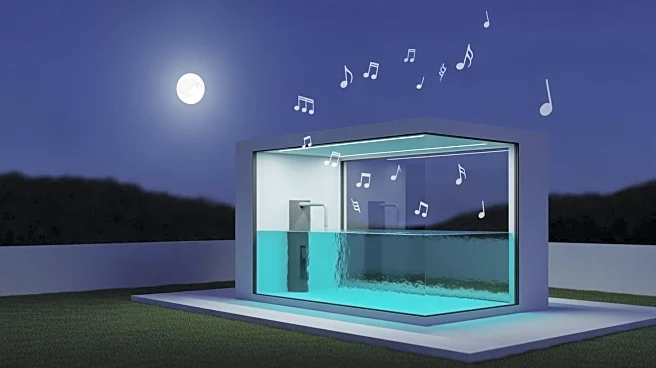What's Happening?
The American Society of Composers, Authors, and Publishers (ASCAP) has filed a lawsuit against The Water Tank Bar & Grill in Northwest Austin. The lawsuit alleges that the venue has been consistently performing musical works without obtaining the necessary
licenses. ASCAP, which represents over 1.1 million music creators, requires venues to purchase licenses to legally play or perform music. Despite repeated attempts by ASCAP to engage with The Water Tank over the past three years, the venue has not acquired the required license. The Water Tank, which hosts karaoke and live music events, claims no legal filings have been issued to them and expresses a commitment to supporting local music. ASCAP emphasizes that licensing fees are crucial for compensating songwriters, many of whom rely on these royalties as their primary income.
Why It's Important?
This lawsuit highlights the ongoing challenges faced by performing rights organizations in ensuring that venues comply with licensing requirements. For songwriters and music creators, licensing fees are a vital source of income, especially for those whose work is not in the public eye. The case underscores the importance of intellectual property rights in the music industry and the role of organizations like ASCAP in protecting these rights. The outcome of this lawsuit could have significant implications for other venues that may be operating without proper licenses, potentially leading to increased compliance and awareness of licensing obligations.
What's Next?
If the lawsuit proceeds, The Water Tank may face substantial financial penalties, including back-payment fees that could exceed the standard annual licensing costs. ASCAP typically prefers to settle such matters out of court, aiming for a fair agreement that compensates songwriters. The case may prompt other venues to review their licensing status to avoid similar legal actions. Additionally, the lawsuit could lead to broader discussions within the music industry about the enforcement of licensing laws and the support of songwriters' rights.
Beyond the Headlines
The lawsuit against The Water Tank also raises questions about the sustainability of live music venues and their ability to support local artists while adhering to legal requirements. As the music industry evolves with technological advancements, the role of performing rights organizations in adapting to these changes and ensuring fair compensation for creators becomes increasingly critical. This case may also influence public perception of the balance between supporting local music scenes and upholding intellectual property laws.
















